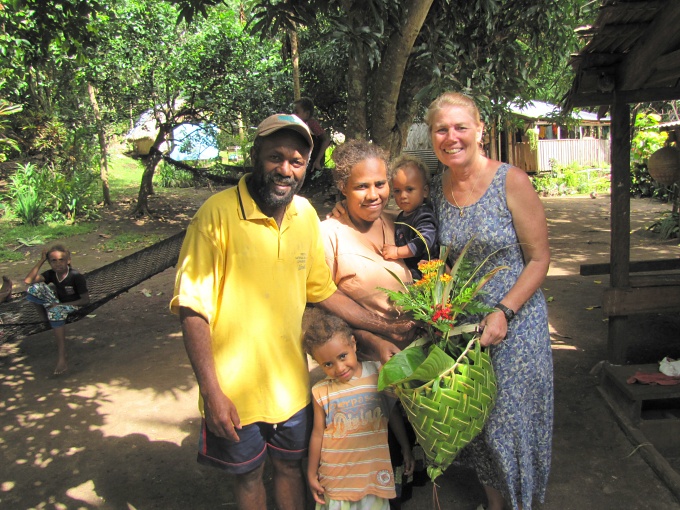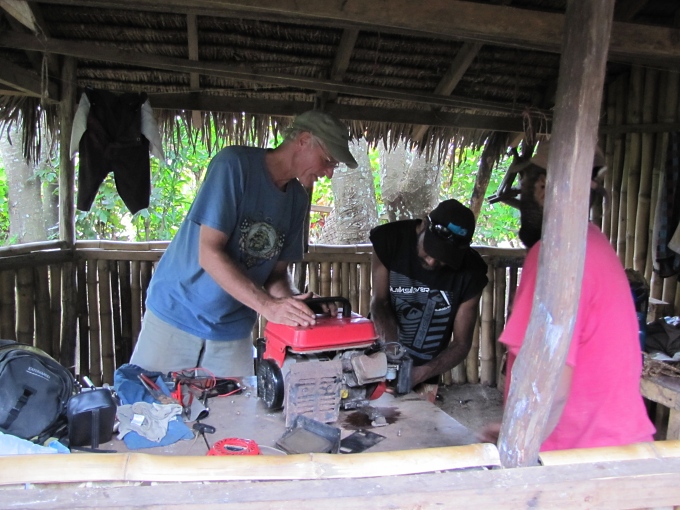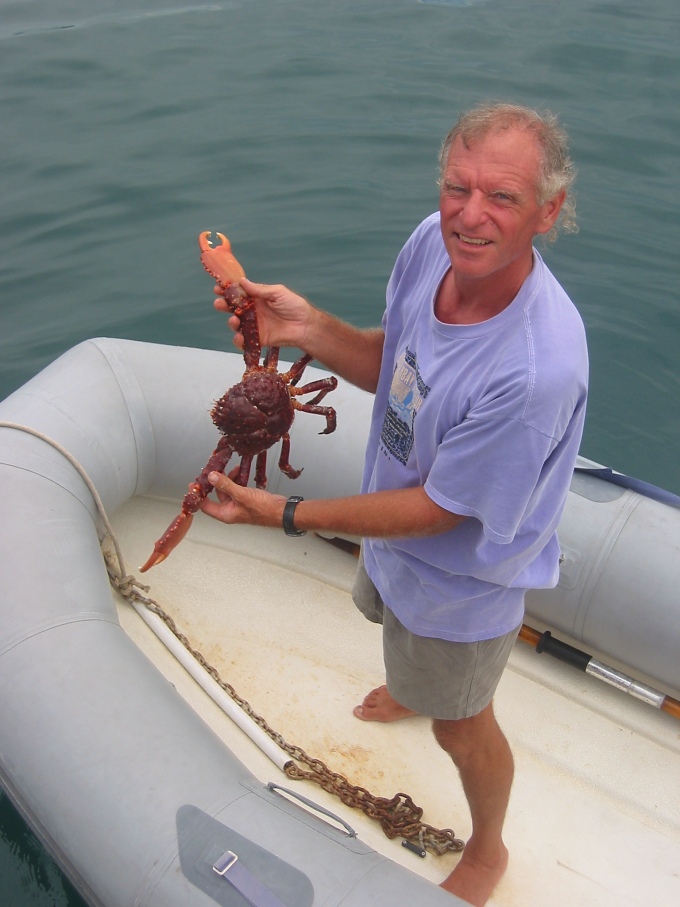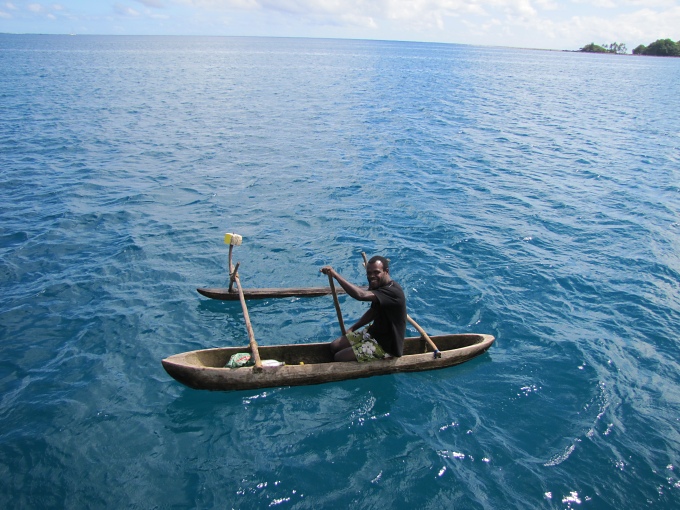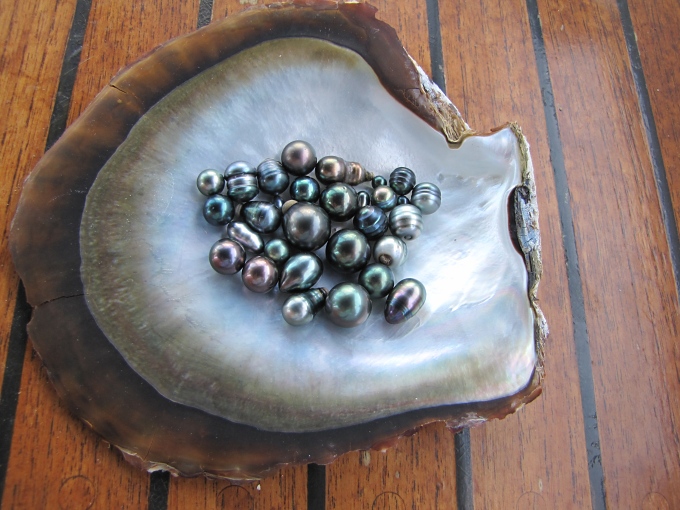Trading and Bartering
/Trading and bartering are common with sailors … between and amongst ourselves, as well as with people we meet along the way. It always seems that you always have something that someone else wants and vice versa. Sometimes it's a boat part or tool or perhaps a service you can perform like fixing a solar panel. Other times it's something totally unexpected like used diesel oil. If you have it and you're willing to part with it, you can be certain that someone else will be happy to have it in exchange for something you want (or that they wanted to get rid of).
Most people shy away from outright gifts. Somehow when you receive a gift from a stranger, you feel somewhat “beholden” to the giver. If you trade a service or an item though, it's totally different. Hopefully, each party is happy with the trade and there's no further obligation on either side and lays the seeds for a fine friendship. David's fixed many a generator and solar panel in exchange for fresh fruits and veggies. We're always happy to help someone, but they usually feel the necessity to repay us. Currency has less value in some remote island location. Freshies, however, or a piece of the local culture, are always welcome.
The Kunas in Panama's San Blas Islands were keen traders. We traded everything from baby spoons to reading glasses. They'd trade their lesser quality molas for sewing needles and thread, but often decided extras like plastic bowls, t-shirts and baseball hats were needed to seal the bargain. The good molas would only appear when cash was available.
Fishermen always seem to be happy to share their catch. We have certainly traded cigarettes and wine for fresh fish, lobster and crabs on occasion. In the Islas Aves off Venezuela, the transient fishermen stopped by daily to have us charge the 12V battery used for their on-shore radio. We had lots of solar and wind power, so it was an easy task, especially when they brought lobster for dinner each night. In the Gambier Islands of French Polynesia, a German ex-pat traded yachties the use of his clothes washer and clothesline for bottles of rum. The size and quality of the rum determined the number of loads to which you were entitled.
We always thought we made pretty good trades, but we found we were mere amateurs when we arrived in the Cook Islands and started trading there. David was able to fix a multi-meter and a drill for a local Customs official. He reciprocated by giving us a pumpkin and a pair of shell earrings which we thought was a very fair trade.
When we arrived in the village of Omoka across the lagoon, however, we found ourselves in the midst of trading professionals and we weren't prepared for the techniques, savvy and sheer genius that the locals brought to the table. We barely had the anchor down when an aluminum skiff was racing towards us ready to trade. We wanted to figure out what we had available and develop a good trading strategy and suggested the next morning would be better, but these folks were not to be dissuaded. They insisted coming aboard to “welcome” us.
"Do you have sun glasses? What about towels? sheets? bungy cord? fish hooks? sewing thread? mixing bowls? Dremel tools? drill bits? fishing rods?" The questions went on and on and they waited quite patiently while we looked for the requested items. It was like a scavenger hunt on the boat figuring out if we had what they were asking for, if we wanted to part with whatever it was and then figuring out where in the heck it might be, because if we were willing to part with it and hadn't used it in awhile, it was probably stowed away somewhere. Finally, with everything located, dug out, laying in the cockpit or on the saloon floor, they dug out some polished shells, a few pieces of jewelry and a couple of natural pearls and said..."Okay, fair trade?". "NO!!!", we said (but in a nice way, of course). They dug out one more pearl and one more shell. "Now, okay? Do you have any perfume?" Eventually, they wore us down and we said "Okay", hoping they'd leave soon. Our heads were spinning. They did leave eventually, but the very next morning, they were back as if the “things that Cook Islanders want” fairy had replenished the larder overnight. "Do you have any ....?" It was like a game of Go Fish, but we never seemed to win the game.
In Vanuatu, DVDs were all the rage … action or kid's movies. They might be wearing loin cloths and tooling around in a dugout canoe, but they had their battery-powered DVD players at home.
We've traded for black pearls, natural pearls, tapas, molas, carvings, baskets, locally made jewelry and hooks and all kinds of fruits, veggies, fish and seafood. We don't trade school supplies, books or kids clothes. Those we donate to the community and people feel fine about it. So, what do we trade? Well, you got drill bits? Fish hooks? Dremel tools? Sewing needles? Reading glasses?


